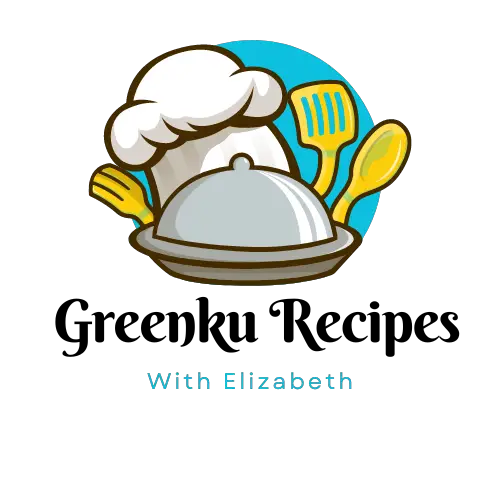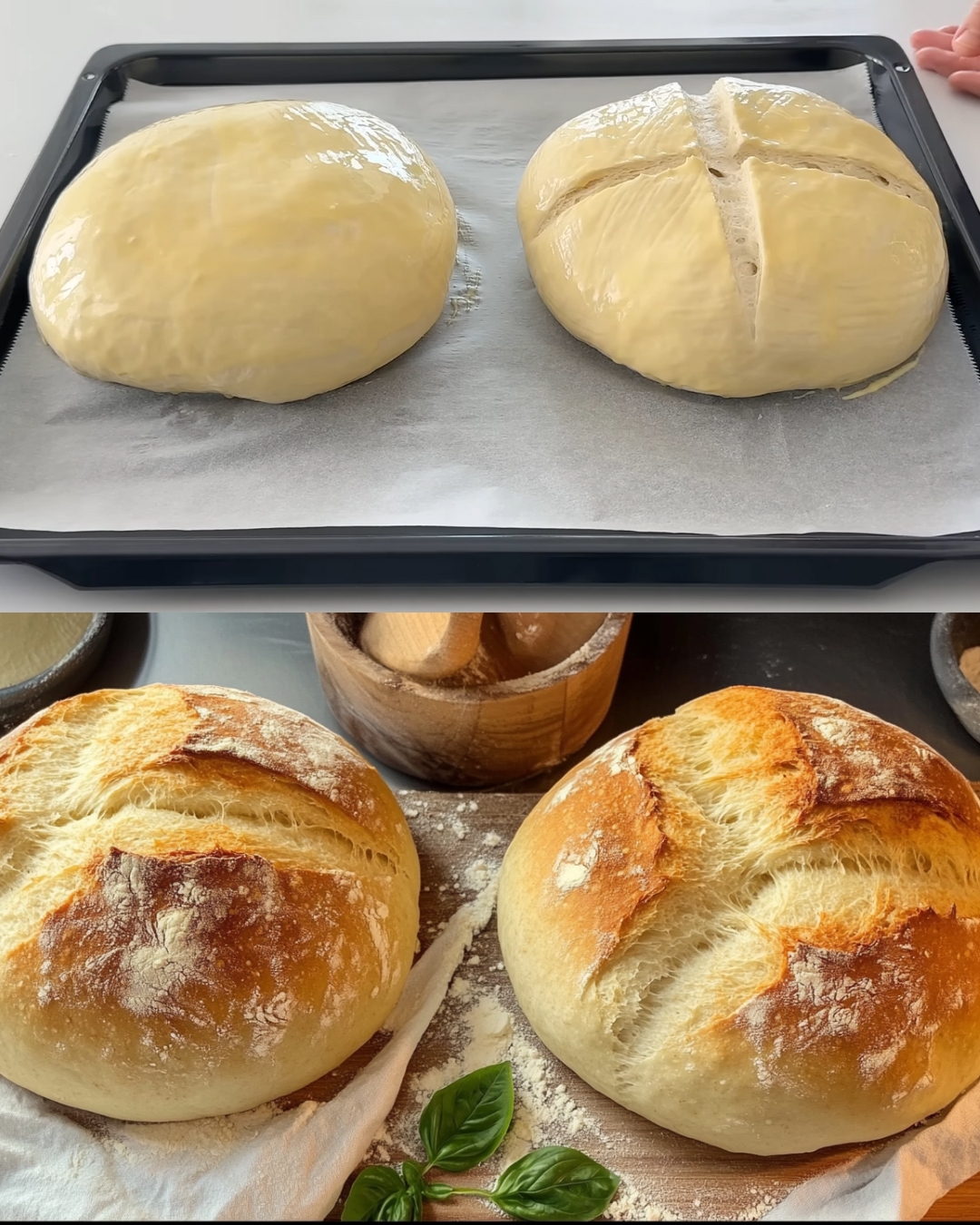This Classic Homemade Bread recipe produces a soft, fluffy loaf with a golden-brown crust. Perfect for sandwiches, toast, or just enjoying with a pat of butter, this bread is simple to prepare and uses basic pantry ingredients. With a combination of light kneading and proper fermentation, you’ll achieve bakery-quality results at home.
Preparation Time
- Prep Time: 25 minutes (excluding rising time)
- Cook Time: 25-30 minutes
- Total Time: Approximately 1 hour 50 minutes
Ingredients
- 10 grams (1 packet) dry yeast
- 200 ml warm water (about 1 glass)
- 720 grams (6 cups) all-purpose flour, plus 120 grams (1 cup) for initial mixing
- 10 grams (1 teaspoon) salt
- 400 ml additional warm water
- 1 egg yolk
- 1 tablespoon milk
Directions
- Activate the Yeast
- In a large bowl, dissolve the dry yeast in 200 ml warm water. Stir until fully dissolved.
- Add 120 grams (1 cup) of flour to the yeast mixture and mix until smooth. Gather the dough into a ball, cover with a cloth, and let it rest for 15 minutes.
- Prepare the Dough
- After resting, add 400 ml warm water to the dough and mix well.
- Gradually add the remaining 720 grams (6 cups) of flour and salt. Mix and knead for 3-4 minutes until a soft, slightly non-sticky dough forms.
- First Rise
- Cover the dough with a damp cloth and let it ferment in a warm place until it doubles in size, about 1 hour.
- Shape the Dough
- Remove the air by gently pressing down the dough. Divide it into two equal parts.
- Shape each part into a ball and let them rest for 10 minutes.
- Lightly flour a work surface and expand the dough with your fingers, then roll it inward to form a loaf shape. Repeat with the second dough.
- Second Rise
- Place the shaped dough onto a baking tray lined with parchment paper. Cover with a cloth and let them rise for another 20 minutes.
- Bake the Bread
- Preheat the oven to 200°C (392°F).
- In a small bowl, whisk together the egg yolk and milk. Brush this mixture over the top of the dough for a glossy finish.
- Bake in the preheated oven for 25-30 minutes, or until the bread is golden brown and sounds hollow when tapped on the bottom.
- Cool and Serve
- Remove the bread from the oven and let it cool on a wire rack before slicing.
Serving Suggestions
- Enjoy warm with butter and jam for breakfast.
- Use for sandwiches or paninis.
- Pair with soups or stews for a hearty meal.
- Slice and toast for a crunchy snack.
- Serve with olive oil and balsamic vinegar for dipping.
Cooking Tips
- Use warm, not hot, water to activate the yeast (about 110°F/43°C).
- Knead the dough until smooth and elastic but avoid over-kneading.
- Ensure the dough is covered during rising to prevent it from drying out.
- For a crustier bread, place a dish of water in the oven while baking.
- Allow the bread to cool completely before slicing for cleaner cuts.
Nutritional Benefits
- Energy Source: High in carbohydrates, making it a great energy booster.
- Low in Fat: Contains minimal fat, especially if using olive oil.
- Customizable: Enrich with seeds or whole grains for added fiber and nutrients.
Dietary Information
- Vegetarian-Friendly: This bread recipe contains no meat products.
- Dairy-Free Option: Substitute milk with a plant-based alternative or water.
Nutritional Facts (Per Slice)
- Calories: 120
- Protein: 3 g
- Fat: 2 g
- Carbohydrates: 22 g
- Fiber: 1 g
- Sodium: 150 mg
Storage
- Room Temperature: Store in a bread box or airtight container for up to 3 days.
- Freezer: Wrap tightly in plastic wrap or foil and freeze for up to 2 months. Thaw at room temperature before serving.
Why You’ll Love This Recipe
- Beginner-Friendly: Straightforward steps make it easy for first-time bakers.
- Versatile: Use as a base recipe and customize with your favorite ingredients.
- Fresh and Homemade: Nothing beats the taste and aroma of freshly baked bread.
- Cost-Effective: Uses simple, affordable ingredients found in most pantries.
Conclusion
This Classic Homemade Bread recipe is a staple for any kitchen, offering soft texture, golden crust, and endless versatility. Whether you’re making sandwiches, toasting for breakfast, or serving with soups, this bread is sure to become a household favorite. Give it a try and enjoy the satisfaction of baking your own delicious loaf from scratch!
Frequently Asked Questions
- Can I use whole wheat flour instead of all-purpose flour?
- Yes, but the bread may be denser. Start with a 50:50 mix of whole wheat and all-purpose flour.
- What if I don’t have a kitchen scale for measuring flour?
- Use standard measuring cups and level off the flour for accuracy.
- Can I make this bread without an egg wash?
- Yes, but the crust may not have the same glossy finish.
- What if my dough doesn’t rise?
- Ensure your yeast is fresh and the water used is warm, not hot.
- Can I add seeds or herbs to the dough?
- Absolutely! Mix in sunflower seeds, sesame seeds, or herbs for added flavor.
- Can I use instant yeast instead of dry yeast?
- Yes, use the same amount and skip the activation step.
- How do I know when the bread is done?
- It should be golden brown and sound hollow when tapped on the bottom.
- Can I bake this bread in a loaf pan?
- Yes, shape the dough to fit the pan and proceed with the baking instructions.
- What is the best way to store bread to keep it fresh?
- Store in an airtight container or bread box at room temperature. Avoid refrigeration, as it can dry out the bread.
- Can I use milk instead of water in the dough?
- Yes, milk adds richness and a softer texture to the bread.

